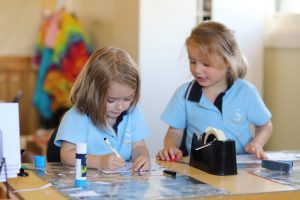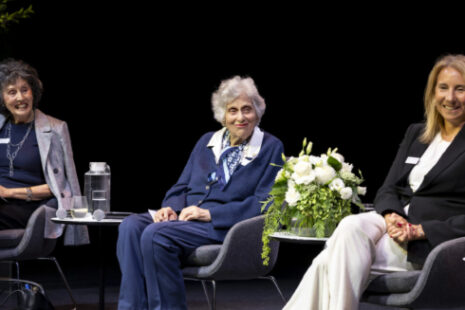Self-Regulation – A Preparation For Life

The ever-increasing pace of daily life alongside the often-invasive impact of social media heightens the importance of developing both self-regulation and emotional resilience from an early age. Self-regulation encompasses the ability to understand and manage your own feelings and behaviour in reaction to what is happening around you.
Shonkoff and Phillips (2000) described self-regulation in children as “developing the capacity to manage powerful emotions constructively and keep one’s attention focused”. Whilst self-regulation continues to develop into adulthood, it develops in the first five years of life and can greatly affect a child’s future wellbeing – physically, emotionally, socially, behaviourally and educationally. Self-regulation is particularly important in the transition to school.

Whilst self-regulation continues to develop into adulthood, it develops in the first five years of life.
“There is now significant evidence that effective self-regulation in the early years provides a foundation for children to develop and grow in a way that develops positive dispositions and skills for learning. It is recognised as a key indicator of better health and education, significantly decreasing the possibility of both developmental and learning difficulties in the future.” – Casenhiser, D., Shanker, S. & Stieben, J. (2012).
It is therefore a fundamental aim in the St Catherine’s Early Learning Centre to support our young children’s wellbeing and emotional resilience. An important element of daily interactions is developing children’s self-regulation skills to assist them to cope with stress, be calm and be alert enough to participate in activities and social interactions. The classroom learning environments are designed carefully to offer opportunities for interactive and quiet, solitary play. Children respond to a range of sensory experiences but also, at times, may benefit from an absence of too much stimuli, such as noise and light, to manage stress and calm themselves down. Music and physical movement activities are also provided to encourage children to physically manage their bodies and reduce stress.

A fundamental aim in the St Catherine’s Early Learning Centre is to support the children’s wellbeing and emotional resilience.
Positive relationships are established and individual differences recognised. Educators actively role model and support emotional regulation and positive interactions to develop the children’s awareness of appropriate behaviours and responses. Social interactions are encouraged through both formal and informal opportunities, and friendships strengthen as the children develop the ability to take turns and share equipment.

Educators in the St Catherine’s Early Learning Centre role model and support emotional regulation and positive interactions to develop the children’s awareness of appropriate behaviours and responses.
Activities such as increasingly complex puzzles, construction equipment and mathematical and concentration games assist the children to develop their thinking and problem solving skills, concentration and persistence in the event of distractions. Educators provide support and encouragement to sustain the children’s involvement and recognise their efforts towards acquiring skills and focus.
Daily group meetings provide opportunities for the children to learn to self-regulate and sit and listen as they share ideas and discuss matters of interest or concern. They are also encouraged to resolve group behavioural or social issues and assume responsibility for their actions and learning environment. Whilst most children are able to verbalise their understanding of positive behaviours and interactions, they often require support to identify positive means for recognising, respecting and expressing emotions. A range of relevant picture books, visual materials, puppetry and dramatic role-play provide the children with opportunities to expand their use of language and awareness as they explore different emotions and behavioural consequences. In this way, they are encouraged to recognise the importance of understanding emotions to enable them to recognise their own and others’ feelings and emotions, which in turn fosters empathy.





